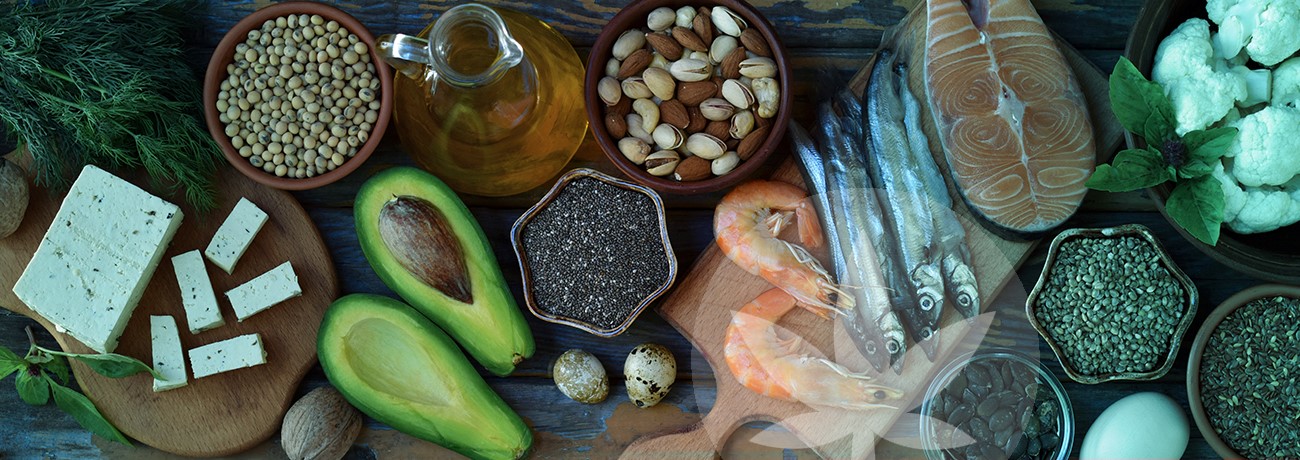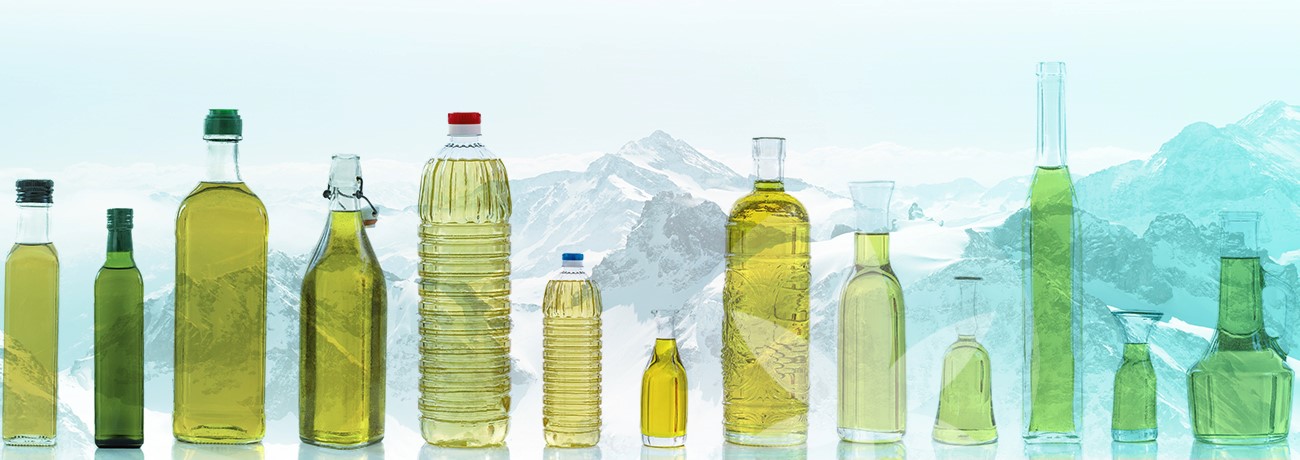Hemp Seed Oil - Nutritional Profile, THC Content And Usage Made Clear
Last updated:
Published:
Hemp seed oil has the healthiest nutritional profile for humans.
A bold claim to start this article with, but allow us to go into a bit more detail. Nearly all of us will have heard of omega-3 fatty acids. Prevalent in cold water fatty fish like salmon, tuna, and sardines, omega fatty acids have been linked to potential improvements in many areas, such as eye health, fighting inflammation, and an increase in many cognitive functions (memory, processing information, etc.). Well, what if we said you could get nearly as much omega-3 from the seed of a hemp plant as the fatty fish we have come to know and love?

The oil within hemp seeds accounts for roughly half its weight. Of that half, 75% of the oil is made up of essential fatty acids. Omega-3 and omega-6 comprise the bulk of these fatty acids, however, it is the ratio of these two acids that puts hemp seed oil in a nutritional league of its own. Achieving a balance of omega-6 and omega-3 is something our prehistoric ancestors did an excellent job of. Typically, their diet featured a omega-6 to omega-3 ratio of 1:1.
Unfortunately, many foods are now being produced for convenience rather than health, causing that ratio to shift dramatically. In some cases, it can be as high as 10:1. Just like most things in life, too much of a good thing has damaging repercussions, which is why we are actively encouraged to eat more fatty fish. The omega-3 they provide is to balance our artificially rich omega-6 diets.
That is what makes hemp seed oil so nutritionally beneficial, the ratio of omega-6 to omega-3 is 3:1—much closer to the type of balance our body favours. Add in vitamin E, chlorophyll, phytosterols, and lecithin, also all contained within hemp seeds, and suddenly that introductory claim does not look so bold.
Hemp is not without its caveats, though. The plant is naturally good at removing toxins from the ground, needing little to no pesticides to fight off disease or insects. Many farmers grow hemp because it can cleanse the land, however, this is not so great if you want to consume the seeds. That is why the origin of hemp is vitally important to the seed oil you are consuming. Hemp grown in healthy, toxin-free soil is best for eating, while hemp cultivated in poor-quality earth can be used to make clothes or fabric without consequences for the wearer.
Try to avoid plastic containers for oil

The use of plastic, more specifically for food containers, has become widespread thanks to ready-made meals and storage tubs. Many of us don’t think twice about putting these products in the microwave when heating food, but depending on the type of plastic, chemicals could be leaking into your food. It is true that nearly all containers, no matter what they are made of, will leak into food or liquids over time. While some, mainly glass, do so at a significantly slower rate, many, including plastic, leak chemicals substantially faster. Usually this would not present too much of a problem because our body can process the chemicals, removing them in a short period of time.
Problems may start to occur when a plastic container is made up of BPA, or bisphenol-A. The substance is used in many popular forms of plastic, because it is transparent, rigid, and heat-resistant. However, preliminary research has shown that BPA can mimic human hormones when it is absorbed by the body, accumulating in body fat. With the potential to disrupt metabolism, growth, or sleep, excessive BPA exposure could be very harmful. To limit the risks that may occur with BPA, it is always best to buy and store oil in a glass container. Oils can accelerate the rate of leaking when they come into contact with plastic. Glass on the other hand is a much safer alternative. If in doubt, pick hemp seed oil in a glass bottle.
Be aware of the THC content in hemp seed oil, especially as parents
Given the inherent link to THC (a psychoactive cannabinoid), it is natural that parents will be cautious about giving young children hemp seed oil. An in-depth laboratory analysis of industrial hemp seeds by Websar Laboratories sought to understand the exact levels of THC in hemp and all its parts. The review by Websar Laboratories is one of the most comprehensive, yet reveals some interesting results:
• “THC is intrinsically found in all parts of the hemp seed, albeit at far lower levels in the hemp seed nut than that found on the hulls, which receive the highest degree of contamination”.
• “The levels of THC will vary between the different OECD-approved industrial hemp seed varieties”.
• “The levels of THC in the various components of a hemp seed can be reduced to below 1.0µg/g (parts per million) when the whole seeds are properly prepared (cleaned) for processing”.
That last point is the one that reveals the most information. By purchasing hemp seeds, you will always be consuming trace amounts of THC. It is present throughout the whole hemp seed, seed hulls, and seed nuts. However, the amount is minuscule. In Canada, where the review was commissioned, Health Canada has regulated the content of THC in hemp seeds to a maximum of 10µg/g. That is nine parts per million more than the levels of THC found in hemp seeds that are cleaned correctly. The entire study emphasises the importance of picking reputable producers who can verify the means in which they prepare their hemp seed oil. By doing so, you should be well within acceptable THC levels.

There is no concrete evidence about the impact of THC consumption on young children, however, it is always advisable to exercise caution. Given hemp seed oil will still contain trace amounts of THC, children best avoid it. It is interesting to note however that the information surrounding the effects of hemp seed oil provides conflicting results.
On the one hand, we have a report of cannabinoid poisoning in a young child who had ingested hemp seed oil. Because a developing child's brain is different from that of an adult, we still do not fully understand how tetrahydrocannabinol (THC) impacts their neurological functions. In the case presented by the NCBI, they did acknowledge that it was the first documented report of cannabinoid poisoning.
On the other hand, we have examples where daily hemp consumption in both children and adults is having a rather remarkable effect. In the mountainous region of Bama, China, the indigenous people consume hemp in an oily broth, often twice a day. The seed acts as a fantastic source of fat and protein. It has also been reported that only 10% of the over-nineties have any signs of heart disease.
It will come as no surprise that Bama is considered by many to be home to some of the healthiest people in the world, all of whom consume hemp seeds on a daily basis. This is an essential contradiction to the report above; in Bama at least, there does not appear to be any negative impact on children's health. Read our blog on Bama's hemp diet and longevity phenomenon.
Always choose cold-pressed oil and consume it cold
Slightly nutty, with an earthy aftertaste, hemp seed oil can be enjoyed as part of a diverse range of recipes. The key, however, is to always enjoy it cold. When heated, hemp seed oil will begin to smoke, burning off the valuable collection of nutrients and fatty acids we are trying to preserve. By choosing cold-pressed hemp seed oil, you will maintain the naturally rich spectrum of compounds beneficial to our body. Don’t worry if you are stuck for ideas. Even cold hemp seed oil can be enjoyed on salads, in smoothies, or as an ingredient in dips and pesto.










